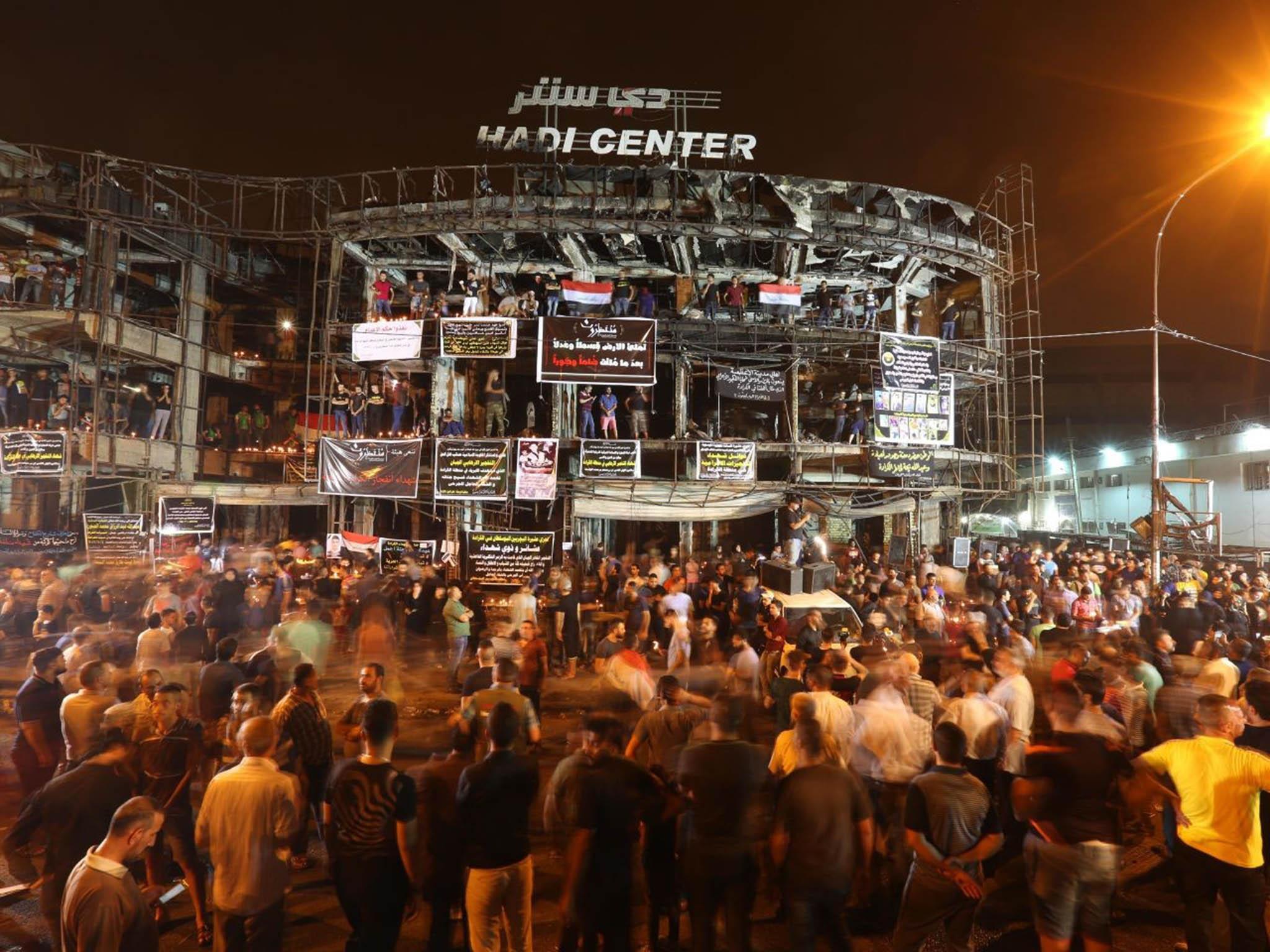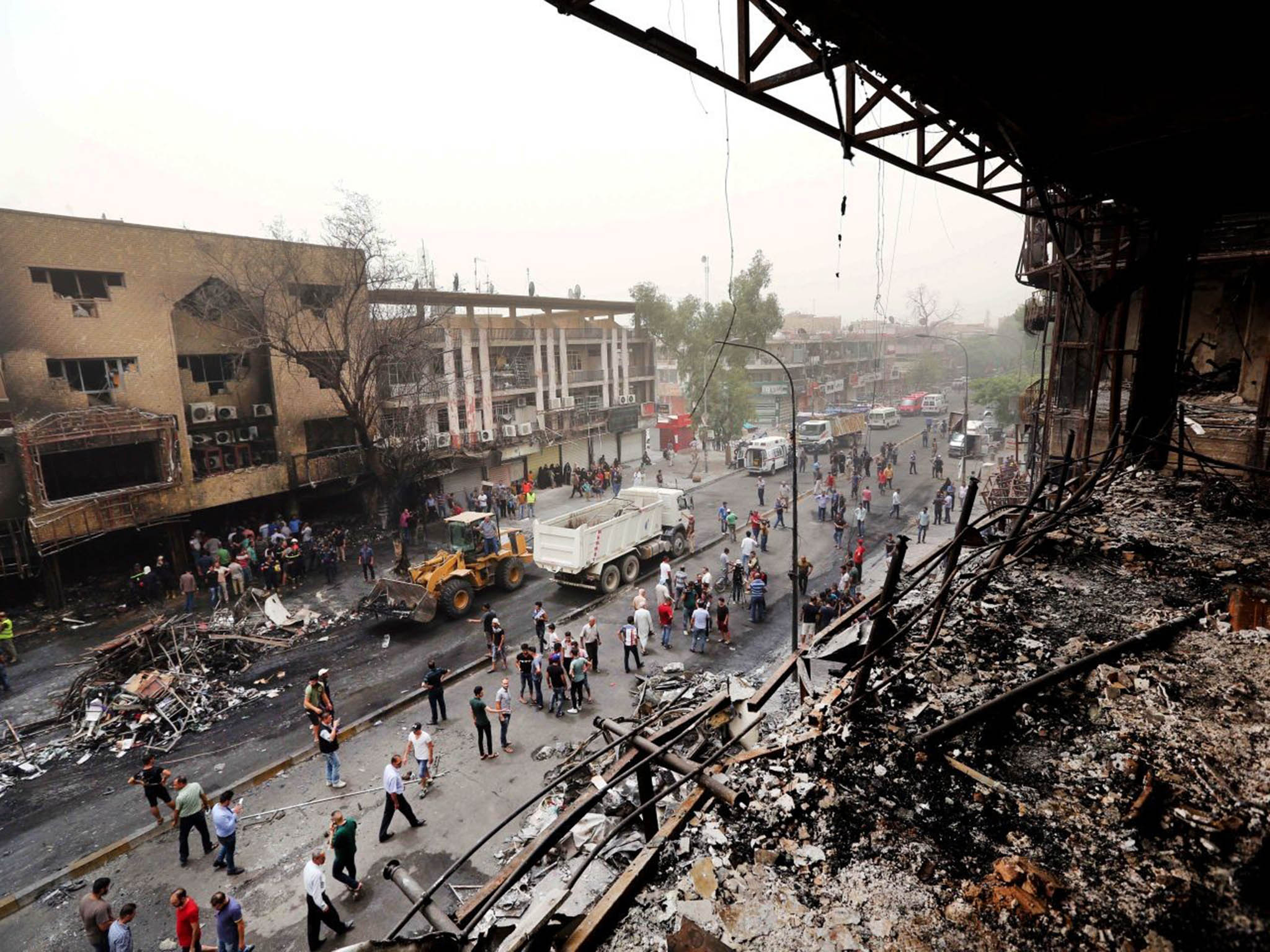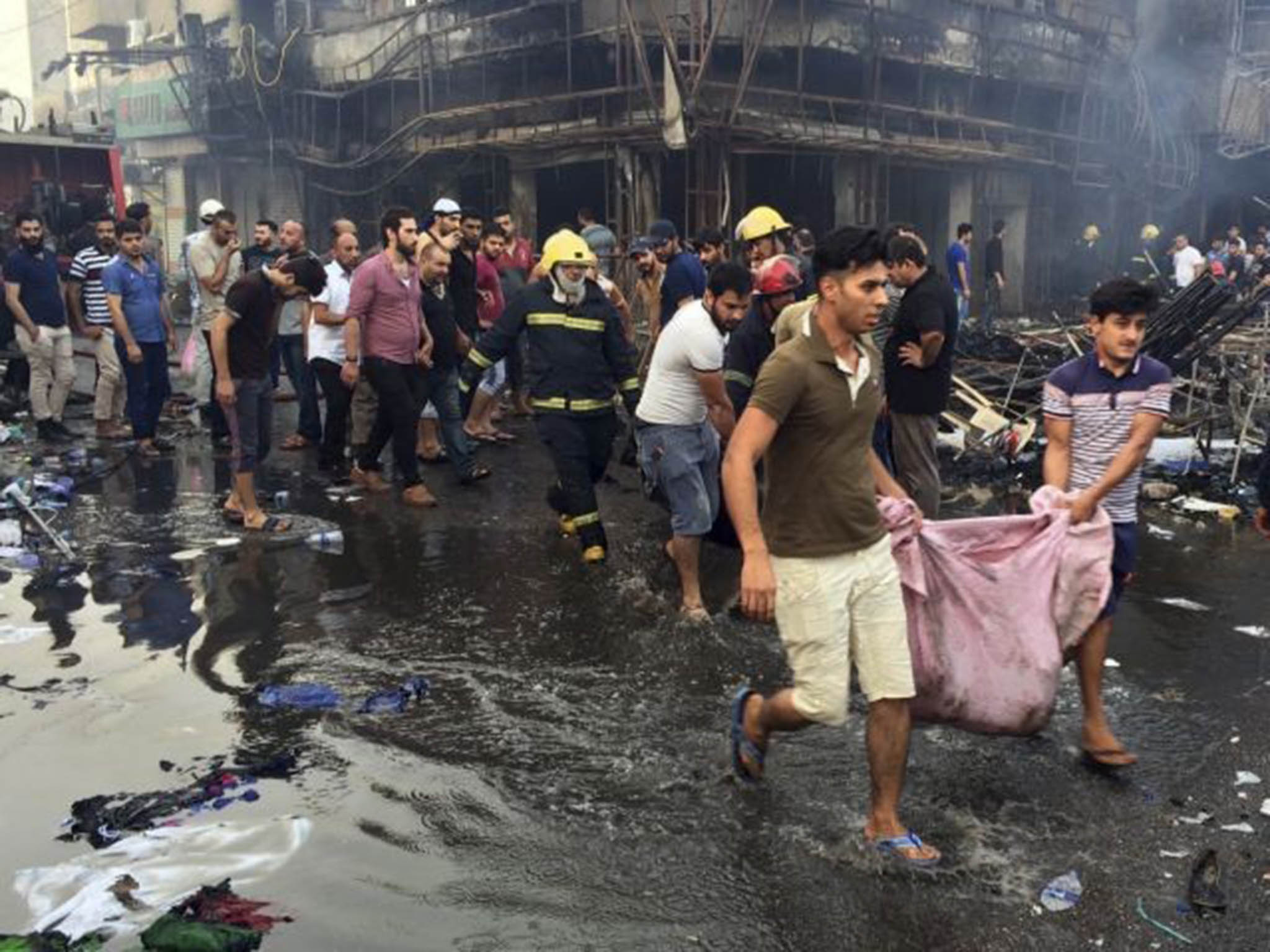Baghdad bombing: Death toll rises to nearly 300 in Isis car bombing
Sunday's attack is the deadliest explosion to hit the Iraqi capital since 2003

The death toll from the deadliest single car bombing in Baghdad since the 2003 Iraq War has reached nearly 300.
Iraq’s health ministry said 292 people were killed in Sunday’s atrocity, which struck a shopping centre in a district of the city home to mainly Shia Muslims.
Isis have claimed responsibility for the attack, in which a vehicle packed with explosives was detonated at around midnight local time at the busy al-Hadi Centre just ahead of celebrations marking the end of Ramadan.
The blast engulfed the shopping mall and surrounding cafes, while fames from the explosion left buildings charred and gutted and many bodies unrecognisable.
It was the deadliest bombing to hit the Iraqi capital more than 10 years of war and insurgency, coming amid a series of almost daily attacks by Isis as it continues to lose territory Iraq, Syria and Libya.

Iraqi Prime Minister Haider al-Abadi dismissed three officials in charge of Baghdad’s security on Friday.
A statement posted on his Facebook page said he had fired the commander of military operations, security services and intelligence in the capital.
On Tuesday, Interior Minister Mohammed Ghabban resigned blaming the attack on a lack of communication between multiple forces in charge of the capital’s security.
He previously said the car bomb - concealed in a refrigeration van - came from the eastern province of Diyala.
There were unconfirmed reports that the vehicle came through checkpoints manned by officers using fake bomb detectors.
Iraq’s top Shia cleric Grand Ayatollah Ali al-Sistani criticised the government‘s failure to deal effectively with the threat posed by Isis.

Speaking in his weekly sermon in the Shia holy city of Kerbala, south of Baghdad on Friday, he said: "Complacency among corrupt and failed [officials] at the expense of the blood and souls of innocents civilians is unbearable and needs to be stopped.”
Isis also claimed a triple suicide attack near a Shia holy site north of Baghdad, which killed at least 35 people and wounded more than 60 late on Thursday night.
Several gunmen are alleged to have opened fire on Shia Muslims who were celebrating the end of the month of Ramadan at a mausoleum in Balad.
Isis considers the Shia Muslim sect heretical, and has made its followers the focus of attacks against Muslims.
Shias were also the main victim of Isis’ worst ever terror attack in Iraq, when gunmen massacred 670 prisoners in Badush in 2014.
The Global Terrorism Index ranks Iraq as the country in the world most affected by terrorist activity, followed by Afghanistan, Nigeria and Syria.
Join our commenting forum
Join thought-provoking conversations, follow other Independent readers and see their replies
Comments
Bookmark popover
Removed from bookmarks